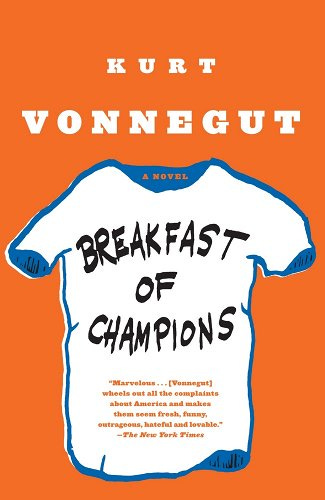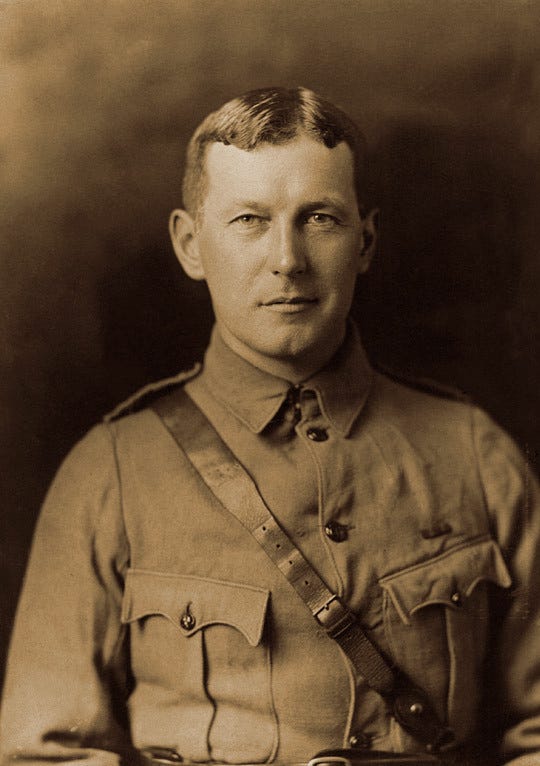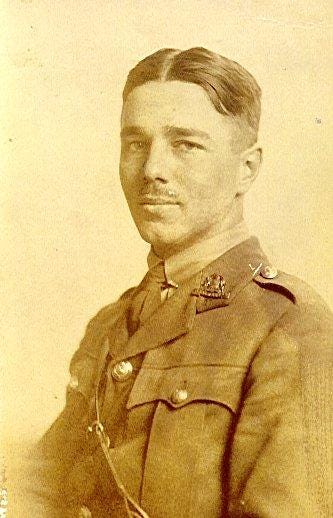Tomorrow, November 11, is Veterans Day in the US. It was not always Veterans Day: November 11th, 1918, was when the first World War came to an end. After that, the day was formally known as Armistice Day, and was honored as such for the next 36 years. In 1954, President Eisenhower changed it from Armistice Day to Veterans Day, so it would honor the Veterans of all wars, rather than just the one.
Broadly speaking, this change was accepted, but one prominent author has since spoken out against the move. Kurt Vonnegut — a man who, as an American Prisoner of War, survived the firebombing of Dresden by Allied Forces at the end of World War II — in his classic novel Breakfast of Champions, wrote that it had transitioned from celebrating a moment of peace to celebrating war:
I will come to a time in my backwards trip when November eleventh, accidentally my birthday, was a sacred day called Armistice Day. When I was a boy, and when Dwayne Hoover was a boy, all the people of all the nations which had fought in the First World War were silent during the eleventh minute of the eleventh hour of Armistice Day, which was the eleventh day of the eleventh month.
It was during that minute in nineteen hundred and eighteen, that millions upon millions of human beings stopped butchering one another. I have talked to old men who were on battlefields during that minute. They have told me in one way or another that the sudden silence was the Voice of God. So we still have among us some men who can remember when God spoke clearly to mankind.
•••
Armistice Day has become Veterans’ Day. Armistice Day was sacred. Veterans Day is not.
So I will throw Veterans’ Day over my shoulder. Armistice Day I will keep. I don’t want to throw away any sacred things.
What else is sacred? Oh, Romeo and Juliet, for instance.
And all music is.
In Britain, the Imperial War Museum used film footage from the day of the Armistice to recreate what the final moments of the war sounded like, which I strongly encourage you to listen to:
If you’re in the United States, you are undoubtedly aware that Veterans Day is a moment in which the country exalts the military and war itsel, cynically leveraging remembrance for those lost in conflict for public support of a military which absorbs most of our tax dollars in the name of murdering and impoverishing millions of people around the world. A day commemorating the end of death and the beginning of peace would be poisonous to such a society.
Poppies & “Gas!”
In the UK and in much of the countries of the commonwealth of former UK territories, Armistice Day is celebrated as “Remembrance Day,” and is honored with the mass wearing of poppies on lapels. Tune in to Premier League soccer over the weekend, and you’ll see every player wearing a red flower on their jerseys.
This is a reference to John McCrae’s famous 1915 poem, “In Flanders Fields”:
In Flanders fields the poppies blow
Between the crosses, row on row,
That mark our place; and in the sky
The larks, still bravely singing, fly
Scarce heard amid the guns below.
We are the Dead. Short days ago
We lived, felt dawn, saw sunset glow,
Loved and were loved, and now we lie
In Flanders fields.
Take up our quarrel with the foe:
To you from failing hands we throw
The torch; be yours to hold it high.
If ye break faith with us who die
We shall not sleep, though poppies grow
In Flanders fields.McCrae himself would die before the end of the war, but his poem was published at the beginning of the war, and thus before public opinion had begun to turn against the violence.
It became a sort of rallying cry, a “do not let us die in vain” that could rally the public towards the war. It is still used in England much in the way that Veterans Day is used in the US: as a vehicle for rallying continued support for the armed forces.
There is, however, a better poem about the war, one that could not muster the same levels of patriotism and militarism of “In Flanders Fields.” This poem is also by a young soldier, an English poet named Wilfred Owen, and it is titled “Dulce et Decorum Est,” based off of an old Latin quote from Horace: Dulce et decorum est pro patria mori, which translates to “it is sweet and fitting to die for one’s country.”
Here is the poem:
Bent double, like old beggars under sacks, Knock-kneed, coughing like hags, we cursed through sludge, Till on the haunting flares we turned our backs, And towards our distant rest began to trudge. Men marched asleep. Many had lost their boots, But limped on, blood-shod. All went lame; all blind; Drunk with fatigue; deaf even to the hoots Of gas-shells dropping softly behind. Gas! GAS! Quick, boys!—An ecstasy of fumbling Fitting the clumsy helmets just in time, But someone still was yelling out and stumbling And flound’ring like a man in fire or lime.— Dim through the misty panes and thick green light, As under a green sea, I saw him drowning. In all my dreams before my helpless sight, He plunges at me, guttering, choking, drowning. If in some smothering dreams, you too could pace Behind the wagon that we flung him in, And watch the white eyes writhing in his face, His hanging face, like a devil’s sick of sin; If you could hear, at every jolt, the blood Come gargling from the froth-corrupted lungs, Obscene as cancer, bitter as the cud Of vile, incurable sores on innocent tongues,— My friend, you would not tell with such high zest To children ardent for some desperate glory, The old Lie: Dulce et decorum est Pro patria mori.
Wilfred Owen was killed in action on November 4, 1918, exactly a week before the guns went silent and for a moment, God spoke clearly to mankind.








I never knew this history of Armistice/Veteran's Day, thanks for sharing. Gotta say, I think I agree with Kurt Vonnegut on this one.